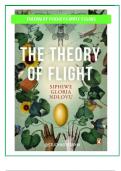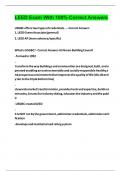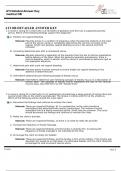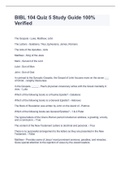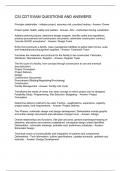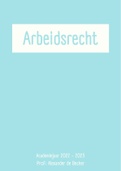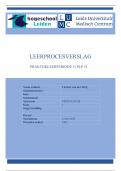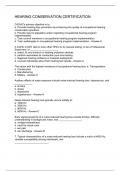Summary
Summary Theory of Flight Essays (IEB Matric)
This document includes 5 Theory of Flight example essays. I achieved 89% for English in the Matric IEB final and these are the essays I wrote throughout the year in preparation for the 2022 final exam. 2 of the essays are complete. The other 3 include a complete introductions and conclusion while ...
[Show more]
